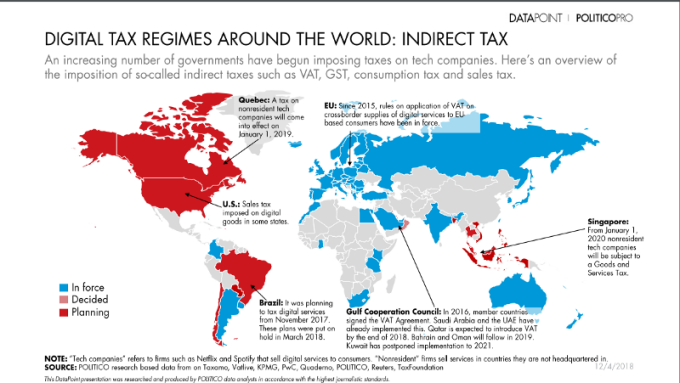Kenyan Tech Firms Kick Off Implementation Of 16% Digital Services Tax
International tech companies have informed Kenyan clients of the normal Value Added Tax (VAT) of 16% that will be applied to any given online service.
These include Netflix movie streaming and Spotify music streaming, as the taxman focuses on Kenya’s burgeoning digital industry.
E-books and videoconferencing are among the additional online services that will reportedly begin to be subject to VAT.

The new developments occur after the 2022 Value Added Tax (Digital Marketplace Supply) (Amendment) Regulations are introduced.
The company that offers QuickBooks, Intuit UK Limited, recently informed its clients that all of its services will now be subject to a 16% VAT.
According to QuickBooks, any online subscriptions beginning on or after January 31, 2023, will be subject to a 16% VAT.
Read also Kenyan Lawmaker Proposes Introducing Crypto Income and Capital Gains Tax
The sales tax was implemented by Zoom Video Communications, a company that controls a platform for virtual meetings, in September 2022.
A 15% withholding tax will also start to be paid by foreign traders who profit from derivative contracts with local counterparties.
The Kenya Revenue Authority stated in November 2022 that it is interested in the digital economy as it implements initiatives to increase revenue and fulfil its financial year responsibilities.
This is happening as Kenya and the rest of Africa strive to embrace a “Digital Economy Blueprint,” a framework to increase their capacity to outpace economic growth.
The paper is supported by five pillars: infrastructure, innovation-driven entrepreneurship, digital skills and values, digital governance, and digital business.
President William Ruto has set a goal for the KRA of Sh2.14 trillion for the fiscal year that ends in June 2024, but he expects them to increase collection over time to between Sh4 trillion and Sh5 trillion.
Read also Kenyan Biotech Startup Ecodudu Raises $540k In New Funding
“We are raising only Sh2.1 trillion in revenue which is 14 per cent of GDP. We need to raise 25 per cent of our GDP like other middle-income countries. That is between Sh4 trillion and Sh5 trillion,” Ruto said.
Kenyan tech tax
Charles Rapulu Udoh

Charles Rapulu Udoh is a Lagos-based lawyer, who has several years of experience working in Africa’s burgeoning tech startup industry. He has closed multi-million dollar deals bordering on venture capital, private equity, intellectual property (trademark, patent or design, etc.), mergers and acquisitions, in countries such as in the Delaware, New York, UK, Singapore, British Virgin Islands, South Africa, Nigeria etc. He’s also a corporate governance and cross-border data privacy and tax expert.
As an award-winning writer and researcher, he is passionate about telling the African startup story, and is one of the continent’s pioneers in this regard


